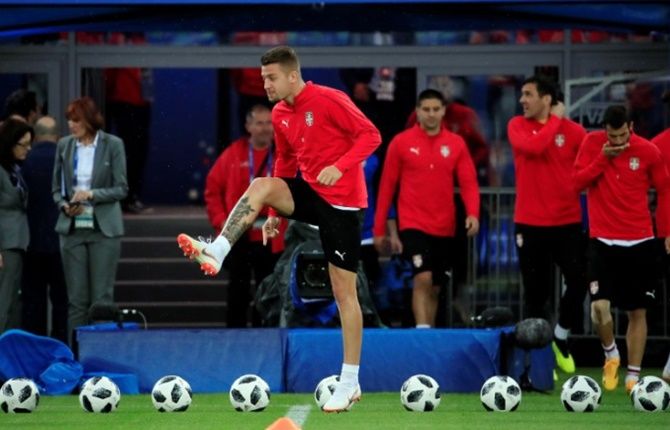
Brazil may have been one of the big disappointments so far at the Russia World Cup, but the pressure is on their opponents Serbia in their final Group E match in Moscow on Wednesday.
Brazil, whose only defeats by the Balkan side came against the old Yugoslavia in 1930 and 1934, need just a draw to secure qualification for the last 16.
For Serbia, who will want to be masters of their own fate, a win would guarantee their progress, although a draw could see them through if the Swiss are beaten by Costa Rica by more than one goal in the other group game.
Brazil come into the game under fire at home after poor performances in their first two games.
They were subdued in their 1-1 draw against Switzerland and had to wait until injury time to finally secure the goals and the win against a limited Costa Rica side.
Full back Fagner believes the pressure is a result of their own spectacular showing leading up to the tournament, a period in which they lost only one match in 21, scoring 47 goals and conceding just five.
"I believe that because of all we did in the qualifiers and friendlies there is a huge expectation that we win our games," Fagner told reporters at Brazil's training camp.

"Our opponents prepare well to neutralise us, but I think as games go on we will create chances either with plays from the professor (coach Tite) or through our own improvisations. Each result and win generates more confidence."
Brazil are expected to be unchanged from the side that beat Costa Rica, although their biggest opponent may be themselves.
The five-time World Cup winners have been criticised at home with striker Neymar bearing the brunt of the opprobrium.
The most expensive player in the world and a constant presence on billboards, television and social media, Neymar has not lived up to the hype and broke down in tears after the last-gasp win over Costa Rica.
Fagner brushed off suggestions that the pressure was already having an effect on Tite's side and said it was a natural reaction to – and maybe even a welcome consequence of – their own high standards.
"We have created an expectation and that leads to pressure. We know we can get better, and that leaves us enthused because we know over the tournament you get better each game," he said.













 © 2024 Rediff.com -
© 2024 Rediff.com -